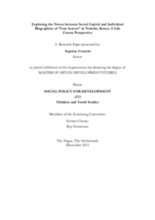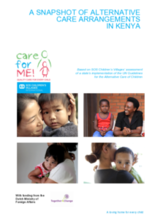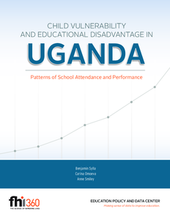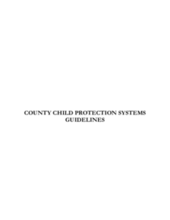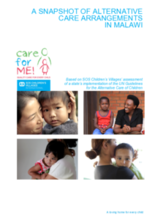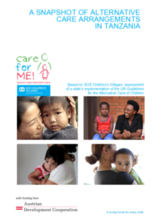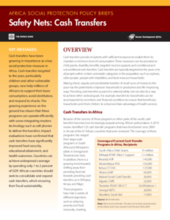Displaying 1311 - 1320 of 1622
This study aims to determine the prevalence of maltreatment experienced by institutionalized children prior to their admission to Charitable Children's Institutions (orphanages) in western Kenya, and to describe their socio-demographic characteris
Employing a life course perspective and drawing upon care leavers' stories, along with focus group discussions and views from staff, this paper explores the concept of social capital and the ways in which this influences their lives before care, in care and after care.
This report presents findings from an assessment of Kenya's implementation of the UN Guidelines for the Alternative Care of Children.
This paper analyzes the extent to which official government “child vulnerability” indicators are associated with two important components of educational disadvantage: school enrollment and sixth grade learning outcomes in Uganda.
The Child Protection System Guidelines were developed to address the fragmented response to child protection in Kenya and guide actors at the county level to deliver more coordinated and professional services for children and their families.
This report from SOS Children’s Villages assesses Malawi’s compliance with, and implementation of, the UN Guidelines on the Alternative Care of Children.
S’efforçant de placer la situation des orphelins du Mozambique dans son contexte régional, celui de l’Afrique australe, et s’inspirant d'études sur le terrain tant quantitatives que qualitatives, cet article examine les différents modes de prise en charge des orphelins et la politique de protection qui leur est applicable au Mozambique, en s’intéressant tout particulièrement aux enfants qui vivent dans des centres d'hébergement ou qui fréquentent les foyers d'accueil.
This report and research conducted by SOS Children’s Villages reviews alternative care arrangements in Tanzania.
In this paper, the author argues that the response to the orphan crisis in sub-Saharan Africa has focused mainly on mobilizing and distributing material resources to households with orphans. Only a few anthropologists have interrogated the frameworks and values on which the projects for orphans are based. The paper provides an analysis of the trends in foster-care research in Africa and the author suggests that current ethnographic data on foster-care practices do not adequately reflect the changing context of fostering in that continent.
This policy brief from the World Bank provides an overview of cash transfers in African countries.

